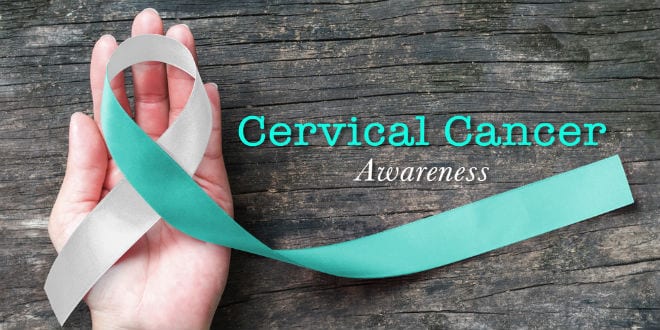God’s instructions to Abraham and his followers to circumcise all male children at the age of eight days was intended to set the Jewish people apart from others.
But it has had the added benefit of minimizing the risk of cervical cancer among Jewish women. If men are circumcised, their female partners are less likely to be infected with human papilloma virus (HPV), which causes the cancer. In addition, the relatively conservative sexual behavior among Israeli women (especially ultra-Orthodox and modern Orthodox Jews and Arab women) help reduce the rate.
Today, the prevalence of cervical cancer in Israel is among the lowest in the OECD (Western developed) countries – it is only 33rd among the 36 OECD member countries, while the mortality rate from this preventable form of cancer puts Israel in 19th place among the member states.
The Israel Cancer Association (ICA) has announced that Israel Cervical Cancer Awareness Day will be marked on January 22. ICA director-general Miri Ziv calls on women in Israel and around the world to “go to a doctor for every symptom you feel and any change that has occurred.”
In 2015 (the latest that cervical cancer statistics have been compiled), 267 Israeli women were diagnosed with invasive cervical cancer. Of these, 201 were Jewish women, constituting about 75% of all patients; 33 Arab women (12%) and 33 “other” women (another 12% of the total number of patients in 2015). As for mortality, 78 Israeli women (65 of them Jewish) died in 2015.
The best ways today to fight cancer of the cervix [the narrow passage forming the lower end of the uterus] are prevention and early detection. The HPV vaccine is included in Israel’s basket of health services and can reduce infection; For girls and boys in eighth grade, vaccination is given as part of the routine of free vaccinations in the school. Every woman between the ages of 30 and 54 may get a free Pap smear to detect lesions once every three years.
Avoidance of smoking also helps cut the risk, and routine Pap-smear testing can detect changes and allow for early detection and timely treatment that may prevent the development of the cancerous tumor. Infection with the HIV (AIDS) virus is also a risk factor.
Cervical cancer is the fourth-most-common cancer in women worldwide after breast, colorectal and lung cancer, with more than half-a-million new cases each year worldwide,” said Prof. Lital Keinan Boker, deputy director of Israel’s Center for Disease Control in the Health Ministry. It begins with a benign (non-cancerous) lesion that can develop into a pre-cancerous lesion and then penetrating cancer. Still, many of the lesions disappear on their own and do not become invasive cancer.
There are more than 150 different strains of HPV, which is very common in the population: About 80% of all adult men and women will be infected with at least one strain of the virus during their lifetime, usually during sexual contact, including oral sex.
In men, the virus can cause genital warts, penile cancer, anal cancer, and oral and pharyngeal cancer. A condom does not completely prevent infection, and multiple sexual partners can increase the risk of infection, but it can also occur even with one partner.
The World Health Organization (WHO) has determined that the HPV vaccine is safe and effective. However, as with any vaccine, there are a few temporary side effects that can accompany it. The main ones are: redness, local pain and swelling at the injection site.
In recent decades, celebrities in Israel and abroad have disclosed the story of their struggle against cervical cancer. The first was Eva Peron, wife of Argentine president Juan Perón, who died of cervical cancer at the age of 33. In June 2009, at the age of 62, the famous American actress and model Farrah Fawcett died after a long struggle with anal cancer, caused in part by human papillomavirus. Upon her death it was reported that she had in fact suffered from colorectal cancer.
A serious meta-analysis conducted in China examined the relationship between cervical cancer and secondhand smoke. The researchers examined 14 studies from various databases and from countries around the world (Korea, Thailand, Japan, India, Spain and the US) that focused on finding the link between secondhand smoke and cervical cancer at all stages of the disease. The study found that there is a positive association between secondhand smoke and the risk of cervical cancer, with the risk 70% higher in those exposed to tobacco smoke.
Regularly eating processed meat and French fries increase the risk of cervical cancer, according to an Israeli study that involved 539 women who received abnormal Pap test results and were required to continue their investigation. Observing a Mediterranean diet of fish, olive oil, pulses, whole grains, poultry and little red meat reduces the risk of this and many other types of cancer.




